Progarchives.com has always (since 2002) relied on banners ads to cover web hosting fees and all.
Please consider supporting us by giving monthly PayPal donations and help keep PA fast-loading and ad-free forever.
/PAlogo_v2.gif) |
|
Post Reply 
|
Page <123> |
| Author | ||||
Dayvenkirq 
Forum Senior Member 
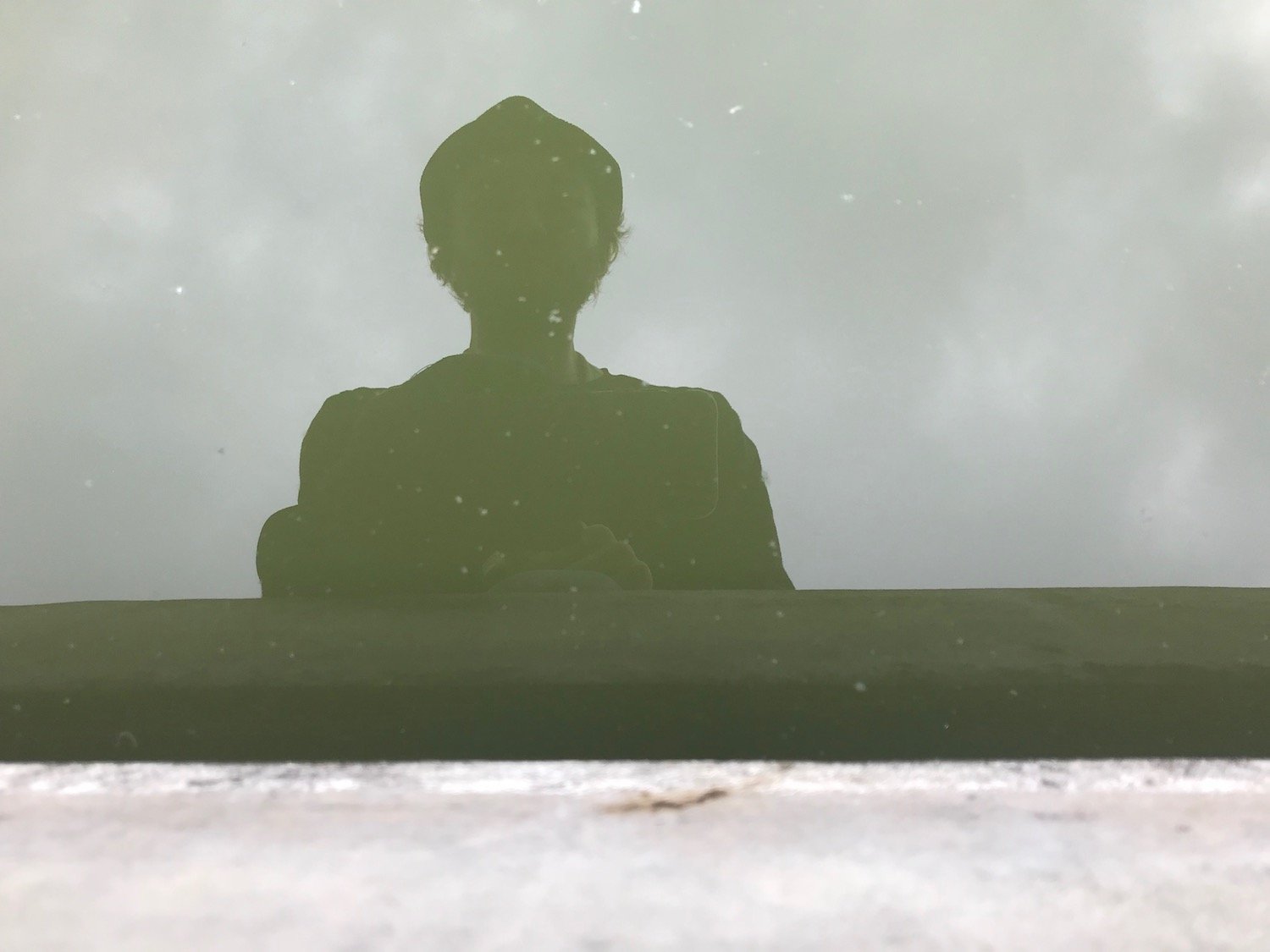
Joined: May 25 2011 Location: Los Angeles, CA Status: Offline Points: 10970 |
 Posted: January 03 2016 at 00:16 Posted: January 03 2016 at 00:16 |
|||
 But go with whatever works for you, Pascal. But go with whatever works for you, Pascal.Edited by Dayvenkirq - January 03 2016 at 03:03 |
||||
 |
||||
Polymorphia 
Forum Senior Member 
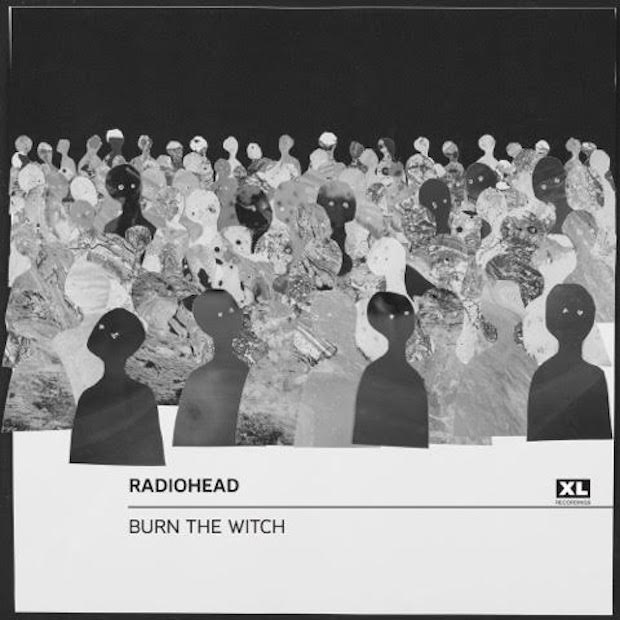
Joined: November 06 2012 Location: here Status: Offline Points: 8856 |
 Posted: January 03 2016 at 00:46 Posted: January 03 2016 at 00:46 |
|||
Edited by Polymorphia - January 03 2016 at 00:47 |
||||
 |
||||
Dayvenkirq 
Forum Senior Member 

Joined: May 25 2011 Location: Los Angeles, CA Status: Offline Points: 10970 |
 Posted: January 03 2016 at 01:57 Posted: January 03 2016 at 01:57 |
|||
|
^ I write scale degrees in a melody down so that when I go back, read, and play them I will remember what a b3 or a 5th or a b13th sounds like in that melody.
Edited by Dayvenkirq - January 03 2016 at 02:02 |
||||
 |
||||
DDPascalDD 
Forum Senior Member 
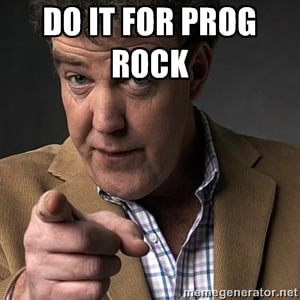
Joined: August 06 2015 Location: The Netherlands Status: Offline Points: 856 |
 Posted: January 04 2016 at 10:39 Posted: January 04 2016 at 10:39 |
|||
|
Thanks a lot guys, this will truly help me!
One question along the way: I want to play the following chord on guitar: a C minor with an added second (d) and an E flat in the bass. I could leave the E flat because it will also be played by other instruments, but preferrably with. Also downtuning is gonna be pretty hard concerning other chords I have to play. How could I play this chord (in the most easy way)? |
||||
 |
||||
Polymorphia 
Forum Senior Member 

Joined: November 06 2012 Location: here Status: Offline Points: 8856 |
 Posted: January 04 2016 at 10:46 Posted: January 04 2016 at 10:46 |
|||
|
6th fret on A string, 5th fret on D string, 5th fret on G string, 3rd fret on B string
or, for more of a stretch, 11th fret on low E string, 10th fret on D string, 7th fret on G string, 8th fret on B string
|
||||
 |
||||
Dayvenkirq 
Forum Senior Member 

Joined: May 25 2011 Location: Los Angeles, CA Status: Offline Points: 10970 |
 Posted: January 04 2016 at 18:12 Posted: January 04 2016 at 18:12 |
|||
I would say that you are at a disadvantage here since you want to play the chord on a guitar in a standard tuning. Now, if other instruments will play the Eb, you leave the Eb in the bass and focus on the Root, b3, and 9th of the Cm: or or or with Eb E|-----------------------10-------------------10------------ B|-3---------------------8---------------------8------------ G|-0------7-------------8---------------------8------------- D|-1------5------------10--------------------10------------ A|-3------6------------------------------------------------- E|---------8----------------------------------11------------ The last variation of the chord (11-x-10-8-8-10) you can play (assuming you are a righty) by holding the right index finger on the 11th fret, muting the 5th string, and playing the chord with the right thumb. Clumsy - yes, but if you want that Eb in the bass, ... the choice is yours. Edited by Dayvenkirq - January 04 2016 at 18:34 |
||||
 |
||||
Polymorphia 
Forum Senior Member 

Joined: November 06 2012 Location: here Status: Offline Points: 8856 |
 Posted: January 04 2016 at 18:28 Posted: January 04 2016 at 18:28 |
|||
|
Eb is the flat 3rd. I put it as the bass note, thus there is no need to put it anywhere else (unless it sounds better the other way).
|
||||
 |
||||
Dayvenkirq 
Forum Senior Member 

Joined: May 25 2011 Location: Los Angeles, CA Status: Offline Points: 10970 |
 Posted: January 04 2016 at 18:33 Posted: January 04 2016 at 18:33 |
|||
|
^ Ah, yes, you are right. Got a lot on my mind. Then we can go with [x-6-5-5-3-x].
Edited by Dayvenkirq - January 05 2016 at 11:02 |
||||
 |
||||
Davesax1965 
Forum Senior Member 
Joined: May 23 2013 Location: UK Status: Offline Points: 2826 |
 Posted: March 20 2016 at 05:59 Posted: March 20 2016 at 05:59 |
|||
|
Basically, this will take a minimum of 10 years, and ideally it should take the rest of your life. Oh yes, and it'll cost a lot of money.
Still interested ? ;-) I get 1001 people saying "I wish I could play the sax." Strangely, all of them have never actually bought a sax. I then offer to take them to a music shop, if they bring about a grand I can get them started on a good basic sax: they then just have to practice for the rest of their lives. No takers so far. ;-)
|
||||
|
|
||||
 |
||||
Atavachron 
Special Collaborator 
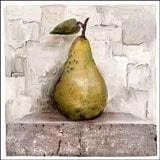
Honorary Collaborator Joined: September 30 2006 Location: Pearland Status: Offline Points: 64350 |
 Posted: March 20 2016 at 20:15 Posted: March 20 2016 at 20:15 |
|||
|
The unspoken fact is that playing an instrument is physically painful and, eventually, can even be a burden. A musician ~ even an amateur ~ is often expected to play, perform, entertain, demonstrate, educate, all at the drop of a hat and with no time to warm-up or compensation to be had. It can go from being a rewarding and pleasurable journey to a monkey on one's back that constantly expects attention.
This concludes my bitter disillusioned rant. |
||||
|
"Too often we enjoy the comfort of opinion without the discomfort of thought." -- John F. Kennedy
|
||||
 |
||||
cstack3 
Forum Senior Member 
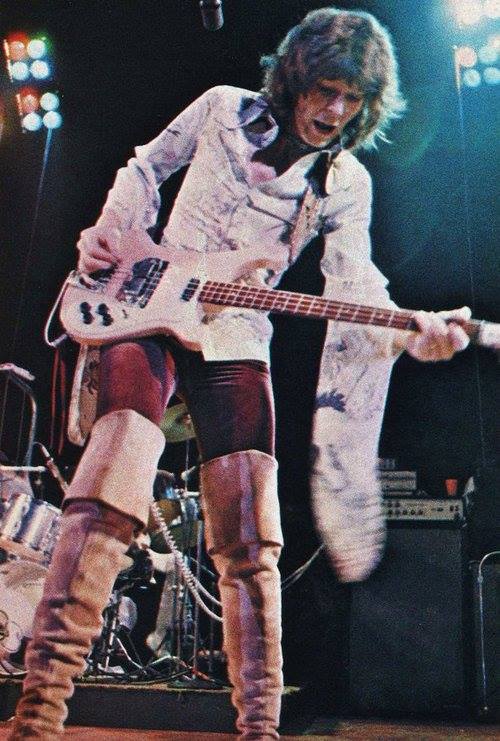
VIP Member Joined: July 20 2009 Location: Tucson, AZ USA Status: Offline Points: 6747 |
 Posted: March 21 2016 at 00:06 Posted: March 21 2016 at 00:06 |
|||
Both. Gilmour is basically a blues guitarist, so learn Major and Minor chords, and the Blues scale, and you will be on your way. Most important thing is not to get frustrated, but since you are already a keyboardist, you should do OK.
|
||||
 |
||||
Davesax1965 
Forum Senior Member 
Joined: May 23 2013 Location: UK Status: Offline Points: 2826 |
 Posted: March 21 2016 at 04:47 Posted: March 21 2016 at 04:47 |
|||
|
CStack is right, there.
Regarding learning guitar. I play sax, guitar, bass, flute and keyboards. Been playing 40 years. My best advice about learning a musical instrument is this: get an MP3 player. Immerse yourself in music of all tastes. Listen to the music, play along with it in your head and then on an instrument. After a LONG time, you will develop all the skills needed to improvise and will have an enormous back catalogue of ideas in your subconscious to call on. That's what takes a long time in becoming a musician. There are several stages. In the first stage, you are constrained by the physical limitations of learning to play the instrument. After you get over that, you are then constrained by an adherence to the music - ie., you've immersed yourself in tab and can't think without it, you have no ideas of your own. Throw the tab or sheet music away. Third stage. You begin to learn to improvise and this means a lot of time and mistakes. Fourth stage, you just play. An idea automatically pops up and comes out of the instrument. It takes quite some time to get there. Equipment. Most novice musicians fall into the trap of trying to compensate for lack of skill by buying equipment. They simple must have guitar X, with capacitor Y's in it, they must use these strings, this amp and this tuner. Guitarists are especially prone to this. Truth be told, 95% of guitarists can't play beyond tab or strumming a few simple chords. Not many improvise. You can sit in a music shop all day and hear one or two people doing something new or novel. Pretty poor figures. Avoid music forums as much as you can, for example, the Moog one is just nasty and most guitar forums are full of unpleasant people telling you you must do this or that and that they're subtly better than you. NO amount of equipment is a substitute for skill. Practice Ginger Baker practices drums for 30 minutes a day. His argument is that musicians fall into the trap of overpractising one riff or beat. Scales are like times tables. Know them ? Stop practicing them, or you will fall into the trap of "scales go up and then down" - I've known people who just practice scales for 50 years.... C D E F G A B C / C B A G F E D C . They never learn anything at all. Do NOT rely on sheet music and realise that it's not the scale, the scale is just the framework. Really, it's the idea which drives the music, the scale and chord progression naturally follow. All musical theory is useful in the same way that higher mathematics is useful. You don't have time on stage, when improvising, to refer to music theory. An idea comes in your head, you play it. That's all that's required. Have a nodding relationship with theory but no amount of theory will make you a musician. Ditto sheet music. Sheet music is a representation of music, not music itself. It's like saying knowing the words in a book give you the ability to write a novel. Sheet music is seen as the be all and end all to a lot of musicians: they lean on it and tab like a crutch. Take the sheet music away, they can't play Baa Baa Black Sheep. Some musician. There are 1001 other things I could come up with but..... the most important one is NEVER play to be famous or rich or make money. Play for the music. If you don't play for the music, you will produce worthless crap. Finally, be yourself. You could lock yourself in a room for 15 years and learn every single note Jimi Hendrix ever played. You could then go out and play them, oscilloscope perfect. And guess what ? You would produce nothing of any worth whatsoever. That makes you a guitar copyist and a fantasist, not a guitarist. Edited by Davesax1965 - March 21 2016 at 04:51 |
||||
|
|
||||
 |
||||
DDPascalDD 
Forum Senior Member 

Joined: August 06 2015 Location: The Netherlands Status: Offline Points: 856 |
 Posted: March 22 2016 at 15:17 Posted: March 22 2016 at 15:17 |
|||
|
^Thanks so much. I really need to pick up on learning guitar, not a lot of time lately but I really want to play better.
One thing that is extremely annoying is my timing, it's crap. Over all the years that I've played piano and other instruments, I've played 85% totally solo (practicing at home mostly or on stage solo), 10% with other people (lots of different formations) and 5% "studio" (in my bedroom, but recording for songs that I make). Therefore I developed a timing which doesn't fit with a metronome. Let me make my point clear, if you hear a pianist playing Chopin, the tempo moves up and down whole the time, that's how it should kind of. Now, I don't want to record with a frustrating metronome in my ears (makes it to robotic and not "free" enough) but timing every instrument perfectly is almost undoable for me. How can I fix this? Are there any tricks perhaps? BTW, it's not any problem when playing "live" in a group, just recording over other self-recorded tracks.
Edited by DDPascalDD - March 22 2016 at 15:19 |
||||
 |
||||
pitfall 
Forum Senior Member 
Joined: June 22 2012 Location: Essex, England Status: Offline Points: 109 |
 Posted: March 22 2016 at 17:36 Posted: March 22 2016 at 17:36 |
|||
|
I don't believe in "tricks" when it comes to becoming a better musician.
It's really just about hard work and focus. Recording to a regular pulse isn't 'boring', it's a skill that needs to be learnt, in the same way that playing outside of a fixed rhythm has to be learnt in order to do it well.
|
||||
 |
||||
Meltdowner 
Special Collaborator 

Honorary Collaborator Joined: June 25 2013 Location: Portugal Status: Offline Points: 10215 |
 Posted: March 22 2016 at 18:52 Posted: March 22 2016 at 18:52 |
|||
|
^^ I don't know if that's the case, but I used to have that kind of problem with recordings and I thought I couldn't play right but it was the recording software that was slow and added some delay. I changed the software and it was fine.
It's funny, I've been playing the guitar for 13 years (and constantly learning) but I'm spending a lot of time with keyboards lately. Like with any instrument, it requires a lot of practice and patience to become good and despite some very useful advice here, I believe there's more than one way to learn it. For me it's mainly learning songs from other artists (mostly by ear and not note by note) and going to concerts... and then assimilate the knowledge and improvise, improvise, improvise  Practicing scales "up and down" is useful in the beginning, to find your way in the fretboard but after a while I think it's pointless. Nowadays, when I learn a new scale I study the progression and improvise. Practicing scales "up and down" is useful in the beginning, to find your way in the fretboard but after a while I think it's pointless. Nowadays, when I learn a new scale I study the progression and improvise. |
||||
 |
||||
DDPascalDD 
Forum Senior Member 

Joined: August 06 2015 Location: The Netherlands Status: Offline Points: 856 |
 Posted: March 23 2016 at 08:44 Posted: March 23 2016 at 08:44 |
|||
|
I think the software is right, it's more like many notes are a tad too late or early. It's very annoying if you can't get it right enough to liking. Of course I have to practice and improvise a lot; but what is a good way of practicing to improve my timing?
|
||||
 |
||||
DDPascalDD 
Forum Senior Member 

Joined: August 06 2015 Location: The Netherlands Status: Offline Points: 856 |
 Posted: March 23 2016 at 08:49 Posted: March 23 2016 at 08:49 |
|||
|
Let's put a link so you can hear it. This is about the best I can get it, start at 2:47 : https://soundcloud.com/pascal-dool/03-how-many-eau-clog/s-4kJca
|
||||
 |
||||
Meltdowner 
Special Collaborator 

Honorary Collaborator Joined: June 25 2013 Location: Portugal Status: Offline Points: 10215 |
 Posted: March 23 2016 at 09:11 Posted: March 23 2016 at 09:11 |
|||
|
Try to play more softly and don't think much about what you're playing.
|
||||
 |
||||
Davesax1965 
Forum Senior Member 
Joined: May 23 2013 Location: UK Status: Offline Points: 2826 |
 Posted: April 01 2016 at 02:31 Posted: April 01 2016 at 02:31 |
|||
|
Throw the metronome out of the window.
Beginners make the mistake of learning to rely on the metronome, rather than listening to the music. You can't do both. The only time a metronome might come in useful is if you're playing without reference to any other instrument and need to keep time. Metronomes are made to be sold by companies to beginner musicians who think they need metronomes, as the company has told them they do. Keeping time with a band is an acquired skill. It comes with practice. Half listen to the drummer. Half listen to everything else. Feel the music and relax. Don't worry about being slightly off beat, file under "syncopation". Not everything - if you're a guitarist - has to be on beat. This is music, not precision engineering. The sticky out thing on your leg is a foot. Learn to tap it. That is an acceptable substitute.
Edited by Davesax1965 - April 01 2016 at 02:33 |
||||
|
|
||||
 |
||||
Dean 
Special Collaborator 

Retired Admin and Amateur Layabout Joined: May 13 2007 Location: Europe Status: Offline Points: 37575 |
 Posted: April 01 2016 at 04:33 Posted: April 01 2016 at 04:33 |
|||
|
I'm probably the worse person to give advice on playing the guitar because after owning guitars for 50 years and extensive one-on-one lessons with a very good guitar tutor I still cannot play the damn thing. For some reason the fingers on my left hand lack the necessary dexterity (and "memory"), and following a motorcycle accident as a teen my right hand is not as flexible as it should be so strumming is also difficult. (I know, this is a poor excuse - just look at Django Reinhardt  ) )
...truest statement ever made about learning an instrument. Learning to playing the guitar really hurts, especially as your finger-tips haven't become hardened and calloused. In the beginning you'll find that the pain comes long before any fatigue so the important thing is not to be brave and fight through the pain as that can lead to blisters and cuts, even though the rest of your body wants to keep playing. Either of those two injuries can stop you playing for days while they heal and that puts you back to square-one when you start again. Therefore don't practice for long stretches but break them up into shorter periods with rest intervals to recover, four half-hour practices a day are better than a continuous two-hour one. Also, as a beginner you'll be pressing down on the strings far more than you need too and that increases the pain and limits how long you can practice for. I found that not only were my fingertips suffering as a result of this, I developed aches in all the joints in my hand, especially in the thumb. My tutor helped a lot here, advising me to ditch the Fender Squier I was playing because the D-profile of the neck was too deep for me, he also advised on the type of strings to buy, how to set up the guitar with the right action (height of the strings above the fretboard) and recommended replacing the strings frequently and cleaning every time them before playing. Simply changing guitar was a remarkable improvement, the thinner neck meant I wasn't gripping as tightly and my fingers weren't over-reaching, I was still pressing too hard on the strings but he said that would only improve with time and practice. Alas it never did and regardless of how much I practised my playing remained wooden and unpleasant to listen too. Some people are not cut out to be guitarists and sadly I'm one of them.
And mine too.
 |
||||
|
What?
|
||||
 |
||||
Post Reply 
|
Page <123> |
| Forum Jump | Forum Permissions  You cannot post new topics in this forum You cannot reply to topics in this forum You cannot delete your posts in this forum You cannot edit your posts in this forum You cannot create polls in this forum You cannot vote in polls in this forum |